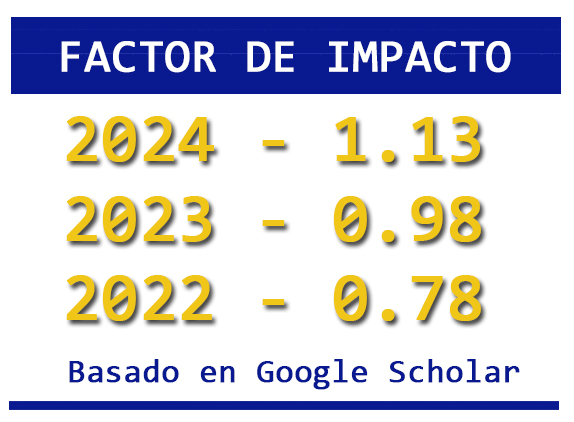Alternativas de recuperación para los aceites lubricantes usados
DOI:
https://doi.org/10.36790/epistemus.v16i32.222Palabras clave:
Aceite lubricante usado, Alternativas de recuperación, Procesos productivosResumen
El aceite lubricante usado generado por vehículos automotores y procesos industriales es un recurso valioso, tanto en su forma original como en su forma residual, por esta razón se identificaron algunos métodos para su recuperación basados en su ciclo de vida, como alternativas para su gestión mediante esquemas de manejo que consideran aspectos tecnológicos y de tratamiento, para la recuperación del material-base y su posible reintegración a las procesos productivos como combustible alterno o como aceite base, contribuyendo de esta manera a lograr un manejo sustentable de este material-residuo, evitando así posibles fuentes de contaminación ambiental y riesgos a la salud humana.
Descargas
Citas
L.A. Manzanarez-Jiménez, «Modelo para reciclado de aceite lubricante usado basado en la NAV-ALU y técnicas de manufactura esbelta,» Revista Multidisciplinaria de Avances de Investigación , vol. 3, nº 2, pp. 11-24, 2017.
EPA, «Managing, Reusing, and Recycling Used Oil» 12 agosto 2021. [En línea]. Available: https://www.epa.gov/recycle/managing-reusing-and-recycling-used-oil. [Último acceso: 15 noviembre 2021].
OEC, «Aceites crudos de petróleo o de mineral butiminoso» 2 Dicicembre 2020. [En línea]. Available: https://pro.oec.world/es/profile/hs92/crude-petroleum. [Último acceso: 22 marzo 2022].
A. Z. Syahir, N. W. W. Zulkifli, H. .. Masjuki, M. A. Kalam, A. Alabdulkarem, M. Gulzar, L. S. Khuong y M. H. Harith, «A review on bio-based lubricants and their applications,» Journal of Cleaner Production, vol. 168, nº 1, pp. 997-1016, 2017. DOI: https://doi.org/10.1016/j.jclepro.2017.09.106
G. F. Dalla, O. Khlebinska, A. Ladolo y S. Miertus, «Compendium of used oil regeneration tecnologies, International Centre for Science and High Technolgy,» 6 enero 2003. [En línea]. Available: www.unido.org. [Último acceso: febrero 2022].
A. Wolak, G. Zając y W. Gołębiowski, «. Determination of the content of metals in used lubricating oils using AAS 37, 102 - 93.,» Petroleum Science and Technology, vol. 37, pp. 93-103, 2019. DOI: https://doi.org/10.1080/10916466.2018.1511584
K. Pramanik, «Properties and use of jatropha curcas oil and diesel fuel blends in compression ignition engine,» Renewable Energy, vol. 28, nº 2, pp. 239-248, 2003. DOI: https://doi.org/10.1016/S0960-1481(02)00027-7
T. F. Guerin, «Environmental liability and life-cycle management of used lubricating oils,» Journal of Hazardous Materials, vol. 160, nº 2-3, pp. 256-264, 2008. DOI: https://doi.org/10.1016/j.jhazmat.2008.03.029
Z. Pawlak, W. Urbaniak, T. Kaldonsky y M. Styp-Rekowski, «Energy conservation through recycling of used oil,» Ecological Engineering, vol. 36, nº 12, pp. 1761-1764, 2010. DOI: https://doi.org/10.1016/j.ecoleng.2010.08.007
A. Sınağ, S. Gülbay, B. Uskan, S. Uçar y S. BilgeÖzgürle, «Production and characterization of pyrolytic oils by pyrolysis of waste machinery oil,» Journal of Hazardous Materials, vol. 173, nº 1-3, pp. 420-426, 2010. DOI: https://doi.org/10.1016/j.jhazmat.2009.08.100
L.A. Manzanarez-Jiménez, Manejo de aceite lubricante usado en motores de combustión interna en el municipio de Ahome, Sinaloa, Ciudad de México: Tesis de Maestrìa del Instituto Politécnico Nacional, 2016.
R. Geyer, B. Kuczenski, A. Henderson y T. Zink, «Life Cycle Assessment of Used Oil Management in California Pursuant to Senate Bill 546 (Lowenthal),» 2013. [En línea]. Available: https://www.researchgate.net/publication/260338228_Life_Cycle_Assessment_of_Used_Oil_Management_in_California_Pursuant_to_Senate_Bill_546_Lowenthal. [Último acceso: 17 noviembre 2021].
S. Kannan, K. Mohan, S. M. Hussain, P. M. Deepa y S. K, «Studies on reuse of re-refined used automotive lubricating oil,» Research Journal of Engineering Sciences, vol. 3, nº 6, pp. 8-14, 2014.
E. Granados-Hernández, Bravo-Álvarez, H, X. López-Andrade y R. Sosa-Echeverría, «Petroleum Refining and its Economic and Technological Impact,» Ingeniería Investigación y Tecnología , vol. XIV, nº 4, pp. 475-487, 2013.
B. Boughton y A. Horvath, «Environmental assessment of used oil management methods,» Environmental science & technology, vol. 38, nº 2, pp. 353-358, 2004. DOI: https://doi.org/10.1021/es034236p
H. Nixon y J.-D. Shapores, «Used oil policies to protect the environment: an overview of Canidian experiences,» 2003. [En línea]. [Último acceso: 6 noviembre 2021]. DOI: https://doi.org/10.1061/40630(255)11
C. Seyler, T. B. Hofstetter y K. Hungerbùhler, «Life cycle inventory for thermal treatment of waste solvent from chemical industry: a multi-input allocation model,» Journal of Cleaner Production, vol. 13, nº 13-14, pp. 1211-1224, 2005. DOI: https://doi.org/10.1016/j.jclepro.2005.05.009
K. Chari, «United Nations Environment Programme,» 2012. [En línea]. Available: https://www.unep.org/resources/report/compendium-recycling-and-destruction-technologies-waste-oils. [Último acceso: 15 octubre 2021].
W. Forester, «Technical guidelines on used oil re-refining of other re-uses of previously used oil,» 2002. [En línea]. Available: www.basel.int › Portals › 4. [Último acceso: octubre17 2021].
T. Swarr, D. Hunkeler, W. Klöpffer, H. Pesonen, A. Ciroth, A. Brent y R. Pagan, «Environmental life-cycle costing: a code of practice,» Int J Life Cycle Assess, vol. 16, pp. 389-391, 2011. DOI: https://doi.org/10.1007/s11367-011-0287-5
A. A. Durrani, M. I. Panhwar y R. A. Kazi, «Re-refining of waste lubricating oil by solvent extraction,» Journal of Engineering and Tecnology, vol. 30, nº 2, pp. 237-246, 2011.
D. Baderna, E. Boriani, F. Giovanna y B. E, «Lubricants and Additives: A Point of View,» de Global Risk-Based Management of Chemical Additives I. The Handbook of Environmental Chemistry, Springer, Berlin, Heidelberg, 2011, pp. 109-132. DOI: https://doi.org/10.1007/698_2011_99
Y.-L. Hsu y L. Chun-Chu, «Evaluation and selection of regeneration of waste lubricating oil technology,» Environ Monit Assess, vol. 212, nº 1-4, pp. 176-197, 2011. DOI: https://doi.org/10.1007/s10661-010-1576-3
M. Fatemeh Amir Aslanzadeh, S. Amin y S. Shiva, «Pilot plant study for management of toxic solid waste collected in landfill,» Process Safety and Environmental Protection, vol. 159, pp. 500-510, 2022. DOI: https://doi.org/10.1016/j.psep.2022.01.025
P. Nowak, K. Kucharska y M. Kaminski, «Ecological and Health Effects of Lubricant Oils,» International Journal Environmental Research Public Health, vol. 16, nº 16 , pp. 1-13, 2019. DOI: https://doi.org/10.3390/ijerph16163002
A. Ewetola E, «Effect of Crude Oil Pollution on some Soil Physical Properties,» IOSR Journal of Agriculture and Veterinary Science, vol. 6, nº 3, pp. 14-17, 2013. DOI: https://doi.org/10.9790/2380-0631417
E. Emam y A. Shoaib, «Re-refining of Used Lube Oil, II- by Solvent/Clay and Acid/Clay-Percolation Processes,» ARPN Journal Science and Tecnology, vol. 55, nº 13, pp. 179-187, 2013.
S. F. Hamilton y D. L. Sunding, «Optimal recycling policy for used lubricating oil: the case of California’s used oil management policy,» Environ Resource Econ, vol. 62, nº 1, pp. 3-17, 2015. DOI: https://doi.org/10.1007/s10640-014-9812-x
N. M. Abdel-Jabbar, E. A. Al Zubaidy y M. Mehrvar, «Waste lubricating oil tretment by adsortion process using different adsorbents,» International Journal of Chemical and Biological Engineering, vol. 4, nº 2, pp. 70-73, 2010.
Swedish Institute for Standards, «Environmental management - Life cycle assessment - Principles and framework - Amendment 1 (ISO 14040:2006/Amd 1:2020),» 2020. [En línea]. Available: https://maconomyportal.sis. [Último acceso: 16 octubre 2021].
Publicado
Cómo citar
Número
Sección
Licencia
Derechos de autor 2022 EPISTEMUS

Esta obra está bajo una licencia internacional Creative Commons Atribución-NoComercial-CompartirIgual 4.0.
La revista adquiere los derechos patrimoniales de los artículos sólo para difusión sin ningún fin de lucro, sin menoscabo de los propios derechos de autoría.
Los autores son los legítimos titulares de los derechos de propiedad intelectual de sus respectivos artículos, y en tal calidad, al enviar sus textos expresan su deseo de colaborar con la Revista Epistemus, editada semestralmente por la Universidad de Sonora.
Por lo anterior, de manera libre, voluntaria y a título gratuito, una vez aceptado el artículo para su publicación, ceden sus derechos a la Universidad de Sonora para que la Universidad de Sonora edite, publique, distribuya y ponga a disposición a través de intranets, internet o CD dicha obra, sin limitación alguna de forma o tiempo, siempre y cuando sea sin fines de lucro y con la obligación expresa de respetar y mencionar el crédito que corresponde a los autores en cualquier utilización que se haga del mismo.
Queda entendido que esta autorización no es una cesión o transmisión de alguno de sus derechos patrimoniales en favor de la mencionada institución. La UniSon le garantiza el derecho de reproducir la contribución por cualquier medio en el cual usted sea el autor, sujeto a que se otorgue el crédito correspondiente a la publicación original de la contribución en Epistemus.
Salvo indicación contraria, todos los contenidos de la edición electrónica se distribuyen bajo una licencia de uso y Attribution-NonCommercial-ShareAlike 4.0 International (CC BY-NC-SA 4.0) Puede consultar desde aquí la versión informativa y el texto legal de la licencia. Esta circunstancia ha de hacerse constar expresamente de esta forma cuando sea necesario.

























